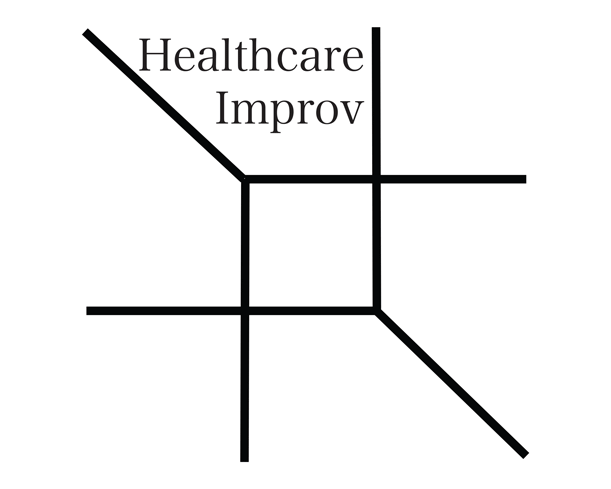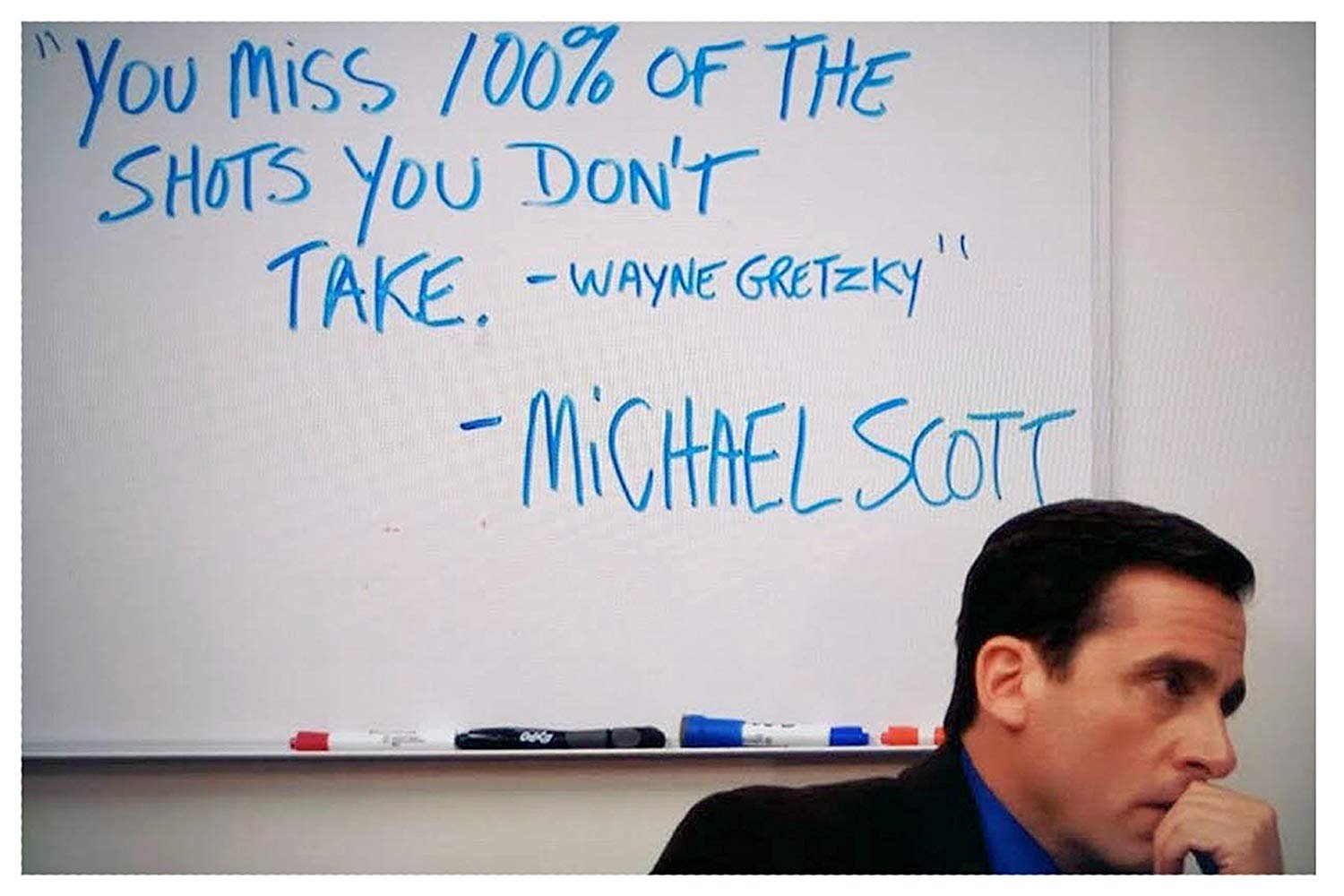Comedy and Tragedy
Well Happy New Year to one and all! I am going to continue (after a break due to work being VERY busy and holiday time relaxing) to share my thoughts on how the coaching and aphorisms that guide you to becoming an effective long form improviser are the same ideas shared by philosophers/thought leaders/people known for living full and happy lives. That means we practice these ideas when we show up for improv rehearsal or shows. It also means that the benefit of practicing these ideas are felt by the improvisor immediately as opposed to the promise of future gains. See previous entry that discusses the The Juice is worth the squeeze. Today’s aphorism that we shall discuss “There are no mistakes!”
This seems like a piece of advice that works perfectly in a comedy theater filled with laughter and people looking to escape the high stakes/stressful parts of their life. In workshops I have led, people call into question if the idea of “There are no mistakes” is a useful idea outside of these low stakes environments, since in life, there are absolutely mistakes, there are actually an infinite number of mistakes available to us at any moment. In healthcare, there are certainly mistakes. In relationships there are certainly mistakes. In improv, I certainly make mistakes.
Wait a minute…I thought this whole thing was “There are no mistakes”. Well, both are true and both actually reinforce the other. Allow me to explain. This piece of advice is for the improviser who is holding themselves back for fear of making a mistake. It is the sense of trust that I can make a bold, brave choice into a scene and trust that my teammates will support me. That comes with the expectation that I will reciprocate that support even if my scene partner’s choice is not exactly what I had planned for the scene. That is at the core of the practice of improv, that sense of trust that develops when people accept that we are trying to do our best and we will figure it out together. That happens on a small scale every improv practice. Sometimes it requires more action from one person, sometimes it requires more listening by that same person on stage. There is a constant balance that is implied when someone instructs “There are no mistakes”. The balance is between knowing I am not making mistakes and knowing that my scene partner is not making mistakes. That only works if both me and my scene partner offer both our full support to the others’ choices and each trust ourselves to make the choice that is needed for the scene. This comes over time between improvisors but can be seen between people who are familiar with what it means to embrace, “There are no mistakes”. What comes over time is 1. the understanding of when this balance got out of whack 2. how it got out of whack 3. how to recognize earlier when it got out of whack and 4. what can be done to avoid getting out of whack in future scenes and shows.
Now, for some people who have used the ideas held within There are no mistakes to live better and more full lives
The first is this gentleman who I know nothing of beyond this TED talk. It hits at the heart of how improv training helps. The talk makes the case for making time in your life to embrace making mistakes because it is what allows for innovation to develop.
Improv is a perfect example of a low-stakes island by the way! Now for some quotes from people who have discovered the same lesson…
““I must not fear. Fear is the mind-killer. Fear is the little-death that brings total obliteration. I will face my fear. I will permit it to pass over me and through me. And when it has gone past I will turn the inner eye to see its path. Where the fear has gone there will be nothing. Only I will remain.””
“The hardest conviction to get into the mind of a beginner is that the education upon which he is engaged is not…a medical course, but a life course, for which the work of a few years under teachers is but a preparation”
“Have no fear of perfection, you’ll never reach it.”
“What I feel fortunate about is that I’m still astonished, that things still amaze me. And I think that that’s the great benefit of being in the arts, where the possibility for learning never disappears, where you basically have to admit you never learn it.”
This picture appears anytime I add a quote of another person quoting someone else
“There’s a jiu-jitsu concept that was introduced to me this summer called the misogi. It comes from the idea that as we get older we take fewer risks, think more inside the box, get more careful, make more decisions based on fear. To combat this, once a year you do something that you’re not sure you can do. That’s the misogi.”
“It was at this point that Bilbo stopped. Going on from there was the bravest thing he ever did. The tremendous things that happened afterwards were as nothing compared to it. He fought the real battle in the tunnel alone, before he ever saw the vast danger that lay in wait”
“If someone can prove me wrong and show me my mistake in any thought or action, I shall gladly change. I seek the truth, which never harmed anyone: the harm is to persist in one’s own self-deception and ignorance”
“If someone can prove me wrong and show me my mistake in any thought or action, I shall gladly change. I seek the truth, which never harmed anyone: the harm is to persist in one’s own self-deception and ignorance”
“The cave you fear to enter holds the treasure you seek. Fear of the unknown is our greatest fear. Many of us would enter a tiger’s lair before we would enter a dark cave. While caution is a useful instinct, we lose many opportunities and much of the adventure of life if we fail to support the curious explorer within us”
“Struggle is not optional – it’s neurologically required: in order to get your skill circuit to fire optimally, you must by definition fire the circuit suboptimally; you must make mistakes and pay attention to those mistakes; you must slowly teach your circuit”
“Imperfections are not inadequacies; they are reminders that we’re all in this together”
“There are no mistakes, only opportunities”
“Is not the decisive difference between comedy and tragedy is that tragedy denies us another chance”
Well, those are quite a few voices who encourage us to not fear making mistakes. The translation into the hospital and clinic is not as direct because no one wants their healthcare providers to jump into their workday with a sense of reckless abandon. The way this principle lives in healthcare is that mistakes will be made, and they must be used to improve how a provider or team operates in the future. Just before the holidays, I did my regular training for our Biocontainment Unit that is two or three in the country that can take care of patients in the event of a highly hazardous communicable diseases (it was one of the three locations that took care of Americans evacuated from Africa during the Ebola outbreak). We were practicing blood draws in a patient with an unspecified highly hazardous and communicable pathogen. This is a time when mistakes could cost the life of me or my teammate. Throughout the training, there was one person performing the action and one person making sure each part of the procedure was performed as safely as possible. It reminded me of improv rehearsal so much (I may suggest to the Biocontainment Team that we start saying “I got your back” at the start of each day now that I am thinking of it). This was the perfect example of using the learning zone (mentioned in the TED video above). On the improv stage, the phrase “There are no mistakes” really means that mistakes will happen anytime we are just making things up, but we can use those mistakes in a way that makes the overall show the best it can be. In the hospital, mistakes will happen unfortunately. Hopefully, through training or simulation (perhaps even improv training!), the most common areas for mistakes can be found and prevented in the future. For healthcare, the aphorism should be “Don’t waste a mistake”. Both “There are no mistakes” and “Don’t waste a mistake” address the fear of not knowing or looking foolish that limit being the best healthcare provider possible.
The balance between this entry and the last entry is something I have been ruminating on as well. The last entry dealt with focusing only on what is important. This entry focuses on making mistakes and figuring it out in time. Last entry prioritizes the idea that life is short with limited time and resources. Today’s entry explores the idea of taking your time, find things that work, learn from things that don’t work. Which one is the best path? Both are needed because what I think is important now may not be important to me in a year or even next week. That balance between “Why is today important” and “There are no mistakes” is also practiced in improv (Justify vs Let it Breathe). It is an important idea to consider when I think about my own life or my own internal dialogue, when I interact with the people in my life, and when I plot a course for my life. Letting both principles live in all of those interactions has been one of the many gifts of improv in my life.


